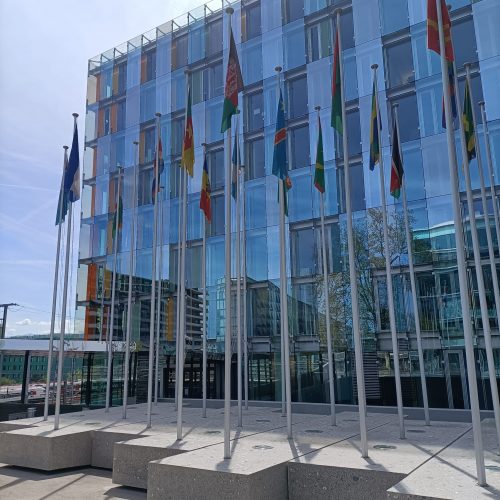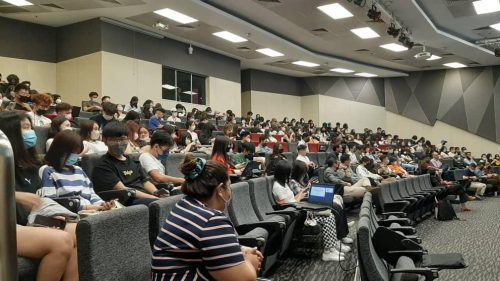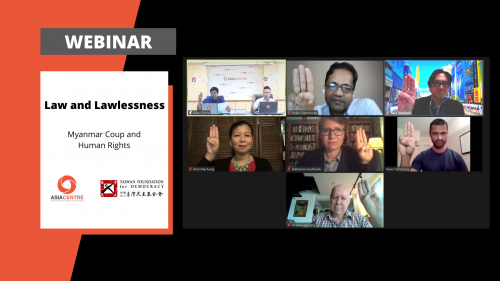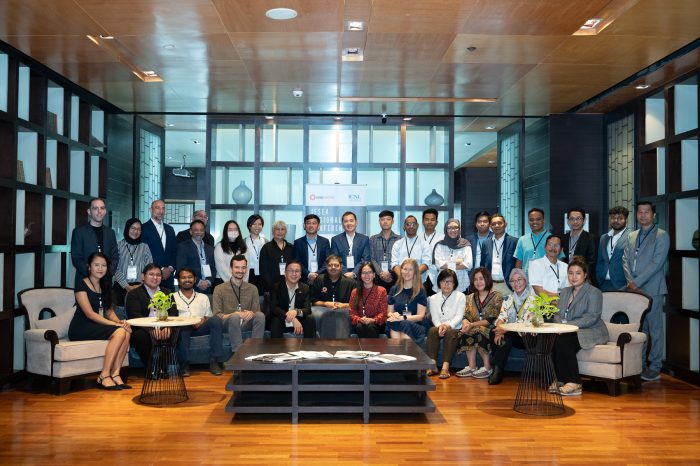
Advocacy for reforming key restrictive legislations and capacity-building, especially on media literacy, and the formation of regional and national coalitions are the top strategy choices to improve internet freedoms in Southeast Asia.
These were the practical approaches identified by over 30 parliamentarians, UN agencies, representatives from CSOs and media associations across Southeast Asia who attended the “IFSEA (Internet Freedom in Southeast Asia) Regional Conference” co-convened by Asia Centre and the International Center for Not-for-Profit Law (ICNL) between 9–10 May 2023, in Bangkok, Thailand.
The regional conference is a part of the wider IFSEA project undertaken by Asia Centre with the support of ICNL to assess the situation of internet freedoms in the region and improve digital rights through advocacy work, public engagement, UN human rights mechanism engagement and network-building. The Regional Conference was organised for the following purposes: to assess the situation of internet freedoms in the region; identify key trends; and find new solutions to improve freedoms of people in accessing and using the internet.
To frame the conference and identify key trends of internet freedoms in the region, Asia Centre set the scene by outlining the overarching themes across its four reports on internet freedoms in Myanmar, Timor-Leste, Cambodia and Malaysia published between 2021-2023. Common themes across the reports were: the inclusion of “internet” as a human right; compliance with international standards of internet freedoms; measures taken by state authorities that violate and restrict internet freedoms; and the joint role of parliamentarians and CSOs in drafting rights-based legislation and establishing oversight mechanisms.
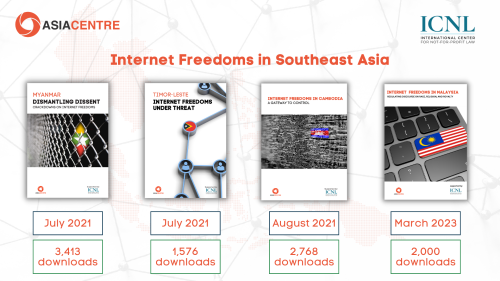
The two-day conference included four panel discussions. The first panel “Internet as a Human Rights in Southeast Asia” assessed the necessary conditions for the use of the internet including infrastructure, fair access and affordability. In the second panel “International Standards of Internet Freedoms”, panellists and participants identified the gaps between international and national legislations in Southeast Asia. In the third panel – “Impacts of Internet Freedoms in Southeast Asia – speakers from CSOs pointed out that individuals, as well as organisations in Southeast Asia, are subjected to prosecution, censorship, and online harassment. In the last and fourth panel, parliamentarians and CSOs jointly spoke to the challenges facing their partnership and outlined how they can work better together.
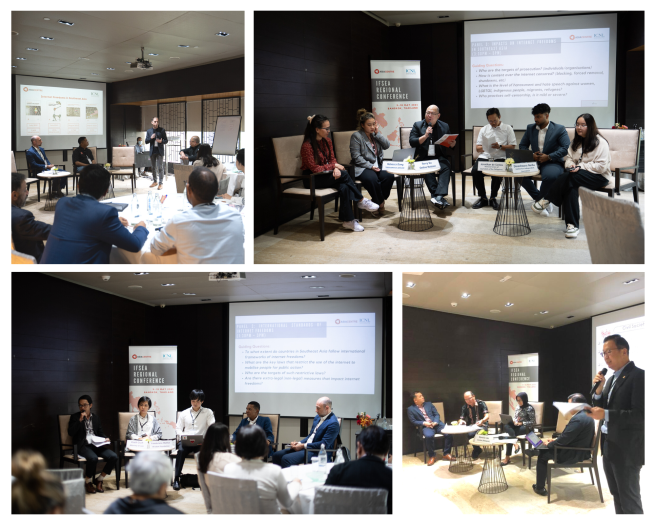
Following the panel discussions, the conference moved to group discussions to identify and prioritise strategies to ensure internet freedoms in Southeast Asia both at the regional and national levels. Guided by these discussions, a roadmap was plotted. At the regional level, the possibilities to undertake four main actions were established.
First, CSOs shall form national and regional coalitions to arrive at a common understanding of access to the internet being a human right, to mutually learn from each other, and to mobilise stakeholders for policy intervention.
Second, as individual organisations or as national and/or regional coalitions, CSOs should advocate and encourage governments to: (1) enhance monitoring mechanisms, (2) build human capacity to raise digital literacy, (3) invest in physical infrastructure expansion and lower prices, (4) localise community guidelines reflect positive cultural norms and (5) encourage context-specific and participatory content moderation practices by social media platforms, while acknowledging local languages and contexts. Additionally, when engaging MPs with these topics, CSOs should draft bills which can be presented to parliamentarians in order to increase the likelihood of parliamentarians taking them up for the necessary action.
Third, discussants also noted the lack of political will to promote internet freedoms across the region. Thus, government representatives and MPs were urged to agree on access to the internet as a human right. Furthermore, parliamentarians were cajoled to openly collaborate with CSOs in the course of drafting relevant laws. In doing so, it was noted that it might be beneficial to foster cross-ministerial initiatives to design the laws in a holistic manner. In this way, the drafting process contributes to a sound legal system that improves internet freedoms.
Fourth and finally, the participants agreed to national multi-stakeholder committees, situated outside the government, which include lawyers, journalists, CSOs and HRDs. Their task would be to exercise oversight over governmental actions and to raise awareness on internet freedoms.
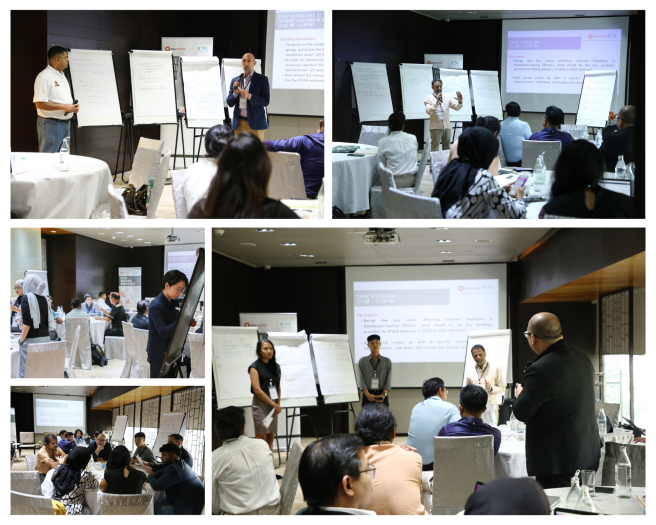
The regional conference brought the three-year IFSEA project nearer to its close. In the next 6 months, before the project officially ends, the Asia Centre IFSEA country project partners (CamboJA and Kyrss Network) will make UPR submissions and meet one last time to brainstorm possible future alliterations of the project.
To find out more about the event and see more pictures, please see event pictures here and a TikTok Video.
Asia Centre is a civil society research institute in Special Consultative Status with the United Nations Economic and Social Council. It serves as a knowledge partner and undertakes evidence-based research as well as provides capacity-building training for end beneficiaries. If you would like to collaborate with the Centre, please send an expression of interest to contact@asiacentre.org.

